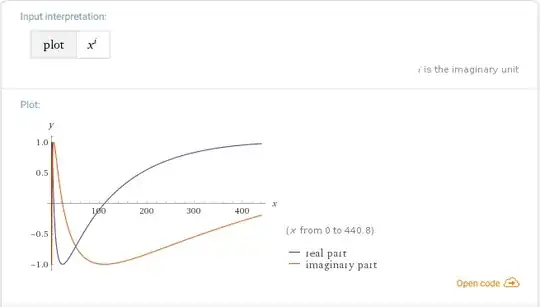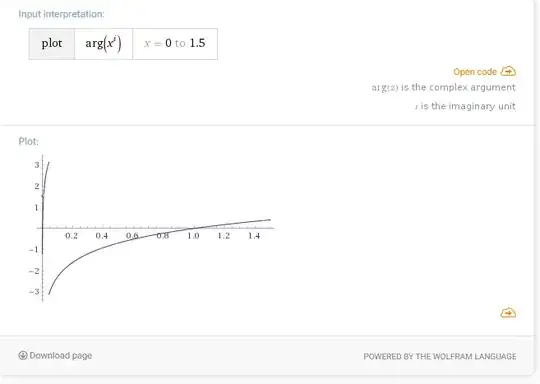Trying to get more intuition on how exponentiation with complex numbers works, I began entering various functions with complex exponents into WolframAlpha. Both $e^{ix}$ and $i^x$ wasn't all that much of surprise, then I entered $x^i$ and...
What the heck am I seeing? Supposedly in $e^{\theta i \pi}$ the $e$ is just a scale factor, chosen for convenience, so that argument would remain 1. Meanwhile, as scale factor the base doesn't behave all that nice either...
Could someone explain what's going on here?

